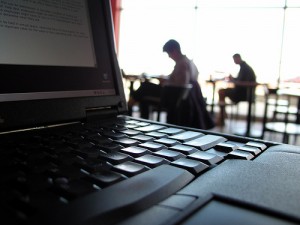The Digital Divide and Net Neutrality
Racialicious Editor Latoya Peterson was at the “Broadband and Social Justice Summit” last week; she covered the event for The Root. Her entire report is worth a read; highlights are below.
Politicians and industry leaders touted their efforts to bring high-speed access to more African Americans, but the issue of net neutrality is still a source of conflict.
Over the hum of laptops and the persistent, attention-demanding chirps of a hundred BlackBerrys, the Minority Media & Telecom Council convened its “Broadband and Social Justice Summit” in Washington, D.C., last week, a gathering of industry and government leaders, to discuss how broadband access and adoption can help bridge the digital divide and provide minority entrepreneurs with unprecedented opportunity in the digital realm.
Despite the gains spurred by activists, telecom workers and policymakers, disparities in broadband access — particularly along race and class lines — persist. According to the Pew Internet & American Life Project, more than two-thirds of adults have broadband Internet access at home. While African Americans have made considerable gains in the last few years, just 56 percent of blacks have broadband at home…
…the summit was not without controversy. Net neutrality, a huge point of contention for many members of of the black digerati, was often demonized by speakers at the event. Net neutrality is the idea that the Internet remains free and accessible on an equal level to all users, rather than a tiered system in which wealthier users can dominate or restrict the bandwidth available to other users.






